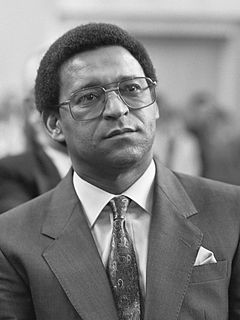A Quote by David J. Lieberman
The next time you make a snap judgment about a situation, take a few moments to understand an opposing viewpoint.
Related Quotes
Now I must live with the consequences of the choice I made. And I will not call it the wrong choice. That would be foolish and pointless. That choice led me to everything that has happened since, including this very moment, and the choices I make today or tomorrow or next week will lead me to the next and next present moments in my life. It is all a journey, Miss Jewell. I have come to understand that that is what life is all about-a journey and the courage and energy always to take the next step and the next without judgement about what was right and what was wrong.
In order to have a hope of creating better answers, we need to deeply understand the logic of the opposing answers. That means thinking about how we think about both models - not just do we like one versus the other. Rather we have to ask: How do I think each model produces the results that it does? Metacognition, thinking about thinking, builds up our capacity to do that and to play with opposing ideas - and new models - in real time.
I think the Mogadishu effect, if I had to define it, is we need to be more careful where we decide to commit US forces, and for what reason, and to make a clear judgment as to what we can and can't do and whether it's in our interests, or we could afford the resources that it would take to make the situation right.
I once heard a sober alcoholic say that drinking never made him happy, but it made him feel like he was going to be happy in about fifteen minutes. That was exactly it, and I couldn't understand why the happiness never came, couldn't see the flaw in my thinking, couldn't see that alcohol kept me trapped in a world of illusion, procrastination, paralysis. I lived always in the future, never in the present. Next time, next time! Next time I drank it would be different, next time it would make me feel good again.
If your starting point for understanding humanity is a racialist viewpoint, with superiority and inferiority projected onto people because of the color of their skin, then it's so easy to take the next step of justifying that point theologically and reading it into the Christian scripture. And that makes it harder to understand what scripture is actually saying!
For many years, I was a really heavy drinker, but people don't know about that because I'm by myself all the time. Recently, I didn't drink for eight or nine months, and I learned that alcohol was quadrupling the embarrassing moments - those moments when you're drunk and you say something you remember the next morning and feel embarrassed about.
Any time you lose a few in a row, you have to hit reset and come back tomorrow and do the best you can to forget about how the past series went. It's frustrating. Individually it's frustrating. I'm trying to figure it out. And I know as a team, it sucks losing a few in a row any time. So you know, we'll snap out of it.
I now look at the things I could have done better and instead of beating myself up about it, since I can't turn back time, I try to remember to ask myself, "what was this experience sent to me to teach me?" I think specifically about what I will do better next time, then I actively look for moments to practice for the next time.




































